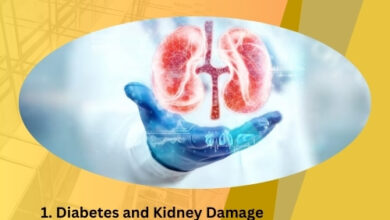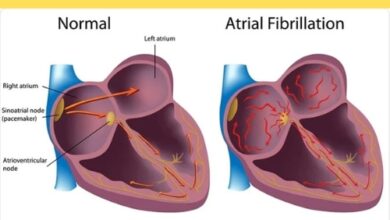These 17 cancer types are more common in Gen X and millennials, as study notes ‘alarming trend’

A recent American Cancer Society (ACS) study found that some cancer forms are more common in Gen X and millennials.
The study examined data from more than 23 million people who received a cancer diagnosis over a 20-year period, and its findings were published in the journal The Lancet Public Health.
The patients represented several generations and ranged in age from 25 to 84.
According to an ACS press release, researchers discovered that the prevalence of liver cancer in females and two to three times higher in small intestine, kidney, and pancreatic cancer in those born in 1990 compared to those born in 1955 for both sexes.
The study also discovered that rates of estrogen-receptor positive breast cancer, uterine cancer, colorectal cancer, non-cardiac gastric cancer, gallbladder cancer, ovarian cancer, testicular cancer, male anal cancer, and male Kaposi sarcoma were higher in younger groups.
Other cancers that were more common in younger groups were non-HPV-associated oropharyngeal cancer (in women), myeloma, leukemia, and cardia gastric cancer.
Additionally, among younger groups, the death rates from female liver cancer, gallbladder cancer, uterine cancer, testicular cancer, and colorectal cancer increased.
“These findings expand on previous findings of early-onset colorectal cancer and a few obesity-associated cancers to encompass a broader range of cancer types,” stated Dr. Hyuna Sung, lead author of the study and senior principal scientist of surveillance and health equity science at the American Cancer Society, in the ACS release. “These findings add to growing evidence of increased cancer risk in post-baby boomer generations.”
“Birth cohorts, groups of people classified by their birth year, share unique social, economic, political and climate environments, which affect their exposure to cancer risk factors during their crucial developmental years.”
Although some age-related cancer patterns have been found, Sung continued, researchers still lack a convincing theory as to why these rates are on the rise.
Although cancer has traditionally been linked to aging, medical professionals are observing a “alarming trend” of an increase in cases among patients under 50, according to Edward S. Kim, M.D., the vice physician-in-chief of City of Hope National Medical Center in California and the physician-in-chief of City of Hope Orange County.
“This new trend showing rises in cancer with an early onset is a paradigm shift,” Kim, who did not participate in the study, emailed Fox News Digital.
“It is vital that we identify the reasons behind this trend, educate the public, advance prevention and early diagnosis, and develop more effective treatments.”
According to Kim, there is “considerable evidence” that early-onset malignancies have environmental causes.
“We cannot deny that an extensive range of environmental factors have rapidly transformed in developed countries since the mid-20th century,” he stated.
Even though it can be challenging to regulate these factors, Kim stated that dietary and lifestyle changes can have a significant impact, especially when made in adolescence and early adulthood.
“Caring for our gut’s microbiome — the internal mechanism responsible for absorption of vitamins, regulation of the immune system, and assistance with food digestion – is essential,” he stated.
The doctor advises abstaining from highly processed meals, exercising to prevent obesity, and abstaining from alcohol and tobacco in order to maintain a healthy microbiome.
Kim added that it’s critical for medical professionals to provide younger individuals with greater access to cancer screening alternatives.
“All too often, primary care physicians may not recommend early screenings, because cancer has traditionally been associated with older ages and the screening guidelines have focused on age-based strategies,” he stated.
“Expanding cancer research efforts focused on younger individuals is another critical area for improvement,” Kim stated.
In order to boost screening rates, the ACS also demands that younger generations have access to “affordable, comprehensive health insurance”.
According to statistics, the global prevalence of cancer among those under 50 is expected to rise by 31% by 2030.
“There is an epidemic of young people being diagnosed with cancer occurring right in front of us, and unless we implement some urgent interventions, I fear we will continue to observe more young people with cancer over the next decade,” Kim stated.




